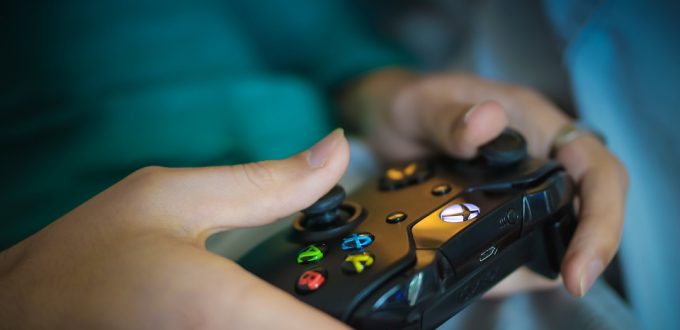To fully understand the extent to which these games transformed my attitude and therefore my life, it’s important to understand where I was before I started playing them. This is around end of 2017. In addition to the nihilism in the political ethos I was also feeling an incredible amount of nihilism in my personal life. I felt like I had hit the limits of what I could reasonably expect my life to be and was frustrated with it. I had developed a strong disconnect between my actions and further improvement of my social and dating outcomes. I stopped caring. I stopped going outside. I would get up, go to work, come home and rot in my apartment. I repeated this day in and day out for months.
Around Christmas time I bought myself a PS4 to wish myself a Merry Christmas. I asked a friend of mine who worked at Sony what games were good for it. I wasn’t looking to heal, I just wanted to get my mind off of the nothingness of everyday life outside of work. He recommended NieR: Automata and Persona 5, for the most part because they’re both well polished JRPGs with interesting stories. I was up for that, bought both of the games and started playing them.
NieR: grabbed me first just because of how fast paced it is. Originally I played for the action, but the more I played the more sucked in I was. While the game was ostensibly about androids fighting robots, throughout the course of the game you discover the world is much much deeper than that. The characters discover much of the world and many things they’ve been told about their organization were lies. This is nothing new in and of itself as a story mechanic, but it’s the execution which had gripped me hard. It was about when you meet one of the last characters in the game, A2 that it extended into full blown catharsis. I initially hated A2 unconsciously because she held up a mirror of what I had let myself become. She was an embittered, cantankerous rogue android who had outlived her purpose and could only take her aggression out on whatever robots had the misfortune of crossing her path. To paraphrase Rick Sanchez: she’s not that great a gal and I’m exactly like her.
I needed to fully experience the gravity well of pain I was in before I could climb out of it. I played the game to completion, with A2’s path to softening, increased compassion and ultimate redemption not lost on me. I watched and rewatched every scene, got all the major endings with the exception of the grind tactic Y ending. I kept going until I felt a deeply needed emotional release. Like something in my body had finally clicked and the wound could begin to heal.
This is about when I started playing Persona. I can and have talked about Persona for days depending on which of my friends you ask. Persona struck me almost from the very beginning as a part of The Great Work. The way you go about essentially performing healing missions on the enemy characters is clearly written by someone who’s done a lot of healing work themselves. There are tons of magical references all throughout the game from the super obvious tarot deck theme and personas being named after gods and goddesses to pretty much everything that happens in the velvet room, to little Easter egg one liners that subtly tie the game to the Lucifer rebellion.
What really grounded as a meditation was the arc of the player-named protagonist. The slow, hard won transition from worthless problem student to community pillar was a helpful thing to hold in my psyche. Perhaps what the most urgent kinesthetic to hold in my mind and body was the feeling of having to spend time wisely and to have something social and engaging to do every day. This is perhaps where I first started noticing the shifts that spending so much time focusing my energy on these feelings was causing.
When you start out Persona 5, you have a tenuous living situation, a problematic relationship with your school. In the beginning, after you get situated, your schedule is mostly blank. You have one fellow problem student you can spend your time with and a few other more utilitarian relationships but that’s about it. Then, over the course of the game you meet and most importantly help more people. Through these acts you come to have a much busier and more fulfilling life. Throughout most of the game my phone was blowing up with people who wanted to spend time with my character in one way or another. I also ended up dating two of the characters.
This is where I saw the game being mirrored in real life. I suddenly started having a lot more things to do. I started developing more regular hangouts with existing friends, developed new circles, even started having crushes on people again, though more on that later. What’s important to note was that I didn’t invest a lot of time or energy consciously trying to change my behavior. I noticed that I responded to things differently and my tone towards my friends was different. I definitely noticed people being more eager to hang out with me and my life blossoming in ways it had been barren before.
Eager to try this from a different angle, I played the game a different way. I took on what’s called a “perfect run”. It’s possible to see all the content of persona in a single play through, though doing so requires a schedule designed by a clairvoyant. Each day you have to do a set of tasks and be sure not to miss a single one. It requires a level of organization and focus that has eluded me up until this point.
As I started to do so, my company announced its intention to move my team to another city. I was pretty quick to say yes since at that point my romantic life had not developed that was something I wanted a fresh start on. Coordinating a move was something that was upon me. I also took a more leadership oriented role at work which involved juggling more tasks and random events that I had to deal with. I found myself mentally resourced in a way I wasn’t before and managed to power through it.
While anticipating the move, I noticed something. My body started getting the message that romance was an option again. I started developing crushes, and even found some to be reciprocated. By the time it came to actually move, I realized that everything I was moving for I had created for myself. As the cheesy movie lesson goes, it was inside me all along.
Now I’m finally moved. Within a week I have already begun making friends and finding ways to impact culture at the new office. The funny part is I never got to fully finish that 100% run since my real life is now too full to spend hours and hours playing video games. I’ll never forget what an amazing influence they were and how they helped me alchemize one of my roughest patches into the kind of beauty I thought was out of my reach for my whole life.
Games are their own reality. As responsible consumers, we can distinguish the fantasy simulation games provide from the reality we have in front of us. What we can do is decide which parts of them to meditate on and let slip into our subconscious and alter our behavior. Obviously your mileage may vary. Games present us with challenges and ways to develop skills and model behavior that, when done consciously and responsibly can really change us for the better.

